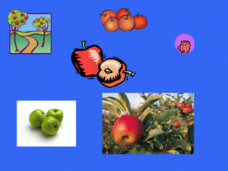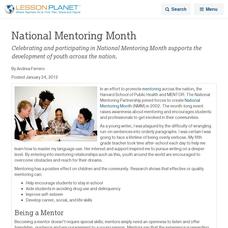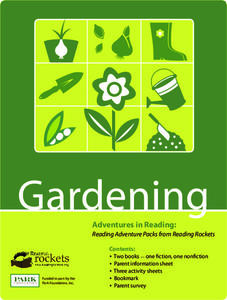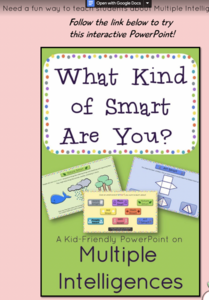Curated OER
Life Cycle of the Plant - The Pumpkin
First graders access prior knowledge about pumpkins and read the story Pumpkin, Pumpkin. They will sequence the life cycle of the pumpkin through the use of picture cards and then sing a song about the life cycle of the pumpkin and plant...
Curated OER
Lesson Plan: Plant Life Cycles
Young scientists view videos to watch the changes through the life cycle of a plant. Then they will germinate seeds on a sock and in a plastic bag. Finally, they answer questions about the sequence of plant growth and record changes in...
Curated OER
Johnny Appleseed
For those learning about Johnny Appleseed, this PowerPoint presents many wonderful activities across the curriculum. Activities in art, music, math, science, and literature are embedded in each of the slides. An excellent presentation...
Curated OER
National Mentoring Month
Celebrating and participating in National Mentoring Month supports the development of youth across the nation.
Anti-Defamation League
Role Models and Stereotypes: Misty Copeland's Story
A lesson points the spotlight at Misty Copeland, the first African American Principal Dancer. A thoughtful discussion prompts pupils to think of their career aspirations and identify ways role models and stereotypes influence young...
PBS
Reading Adventure Pack: Gardening
A Reading Adventure Pack invites scholars to start gardening. Following a reading of two books—fiction and nonfiction—young green thumbs repurpose food containers to grow an herb garden in their kitchen, plant seeds in starter pots out...
PBS
Reading Adventure Pack: Cooking
A Reading Adventure Pack focuses on cooking. Scholars participate in three hands-on activities after reading the fiction book Easy as Pie by Cari Best and the nonfiction book How Did That Get in My Lunchbox? by Chris Butterworth....
Workforce Solutions
Workforce Solutions K-1 Lessons
Three lessons and one at-home connection explore 12 professions. In the first lesson, scholars examine an online map that displays all 12 careers alongside a video. Lesson two challenges class members to choose two of those careers to...
Workforce Solutions
Workforce Solutions 2-3 Lessons
Four lessons and an at-home connection examine 12 jobs. Beginning with an interactive map, scholars view and discuss each one within their small group. Groups focus on the products provided and on their scarcity. Finally, pupils look...
Teachers Pay Teachers
What Kind of Smart Are You
Gain insight into the type of learners that fill your classroom. An eight-question survey asks scholars questions about themselves. Using their color-coded answers, they conclude their degree of intelligence in multiple areas—music,...
DocsTeach
Sequencing from Seeds to Harvest
Explore the farm to table experience in a fast-paced lesson on gardening. The activity uses image sequencing to help young scholars understand the process of growing food from seed to harvest. Academics also participate in group...
American Chemical Society
Using the Properties of Materials to Improve a Model Boat
Work together to stay afloat. Using a paper boat, pupils connect properties of materials to their usefulness. They test different paper to determine how many pennies each boat will hold and learn that combining materials with different...
DiscoverE
Everyday Engineering: Water Pollution Clean Up
Water, water, everywhere, but pollution is a major problem. Scholars design a filtration device or process that removes dirt and other particles from water. They use various household objects such as marbles, cotton balls, or coffee...
National Science Teaching Association
Why Do We All Have to Stay Home?
Learners, especially young ones, might be confused about why or frustrated that we have to stay at home. Help answer questions and calm emotions with a nine-page resource that details topics regarding the COVID-19 pandemic.
Museum of Science
Solar Cooker
A warm, sunny day is perfect for eating great food and learning about science at the same time. Future engineers build solar cookers to prepare food using the Sun's rays. They learn how energy converts from solar energy to thermal energy.
Museum of Science
Wind Turbine
Let the energy blow. Using mostly easily found material such as PVC pipe and fans, pupils build wind turbines. Scholars connect a multimeter to an electric motor to determine the amount of energy generated by their designs. Learners then...
NASA
Providing Light for Your Plants
Using a guided lesson, pupils learn about what it takes to make a circuit along with a switch. They build a complete circuit under the direction from the teacher and identify each of the elements of the circuit. Scholars then learn to...
Purdue University
Eco-llapse
A balanced ecosystem doesn't mean balanced populations. Budding scientists complete a series of activities to learn about the relationship between producers and consumers in an ecosystem. They complete the wildlife conservation...
Purdue University
Mammals and Ecosystems
Mammals have unique interactions with their ecosystems. Using a multi-part lesson, learners research local mammals using recommended websites and use their findings to create their own paper ecosystems including appropriate mammals. They...
Purdue University
Ashes to Ashes: We All Grow Up
Ecosystems are constantly changing whether people notice or not. An inquiry-based lesson examines types of ecosystem changes and how they relate to wildlife conservation. Learners classify changes as succession and disturbance using a...
Purdue University
Reptiles, Amphibians, and the Scientific Method
What do a reptile and an amphibian have in common? A three-part lesson allows scholars to investigate the similarities and differences between the two types of animals by identifying specific body parts. The lesson highlights the...
Polk Bros Foundation
Chicago: Choices and Changes
Chicago, a city that is ever changing. A thought-provoking lesson, geared toward third-grade social studies, explains how the city of Chicago has changed over time. It discusses important leaders to the founding of the city, like Daniel...
Purdue University
What a Waste of Food!
Follow the life of an apple from harvest to the consumer. A three-part lesson describes the different steps to get an apple from the farmer to your kitchen and the approximate waste that happens at each step. They discuss the process and...
Purdue University
Food Waste Solutions
Easy doesn't always mean better. In an era with pre-packaged everything, learners consider the environmental impact of the convenient trend. They critique the packaging of food and how waste impacts cost and then look for solutions.

























